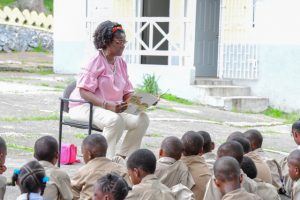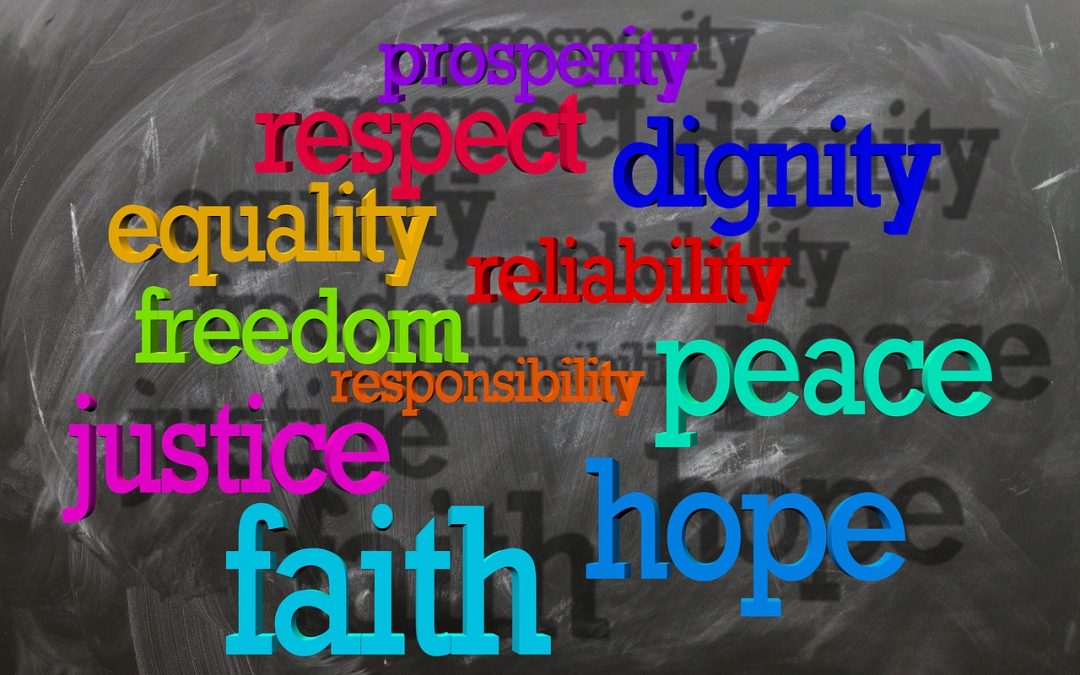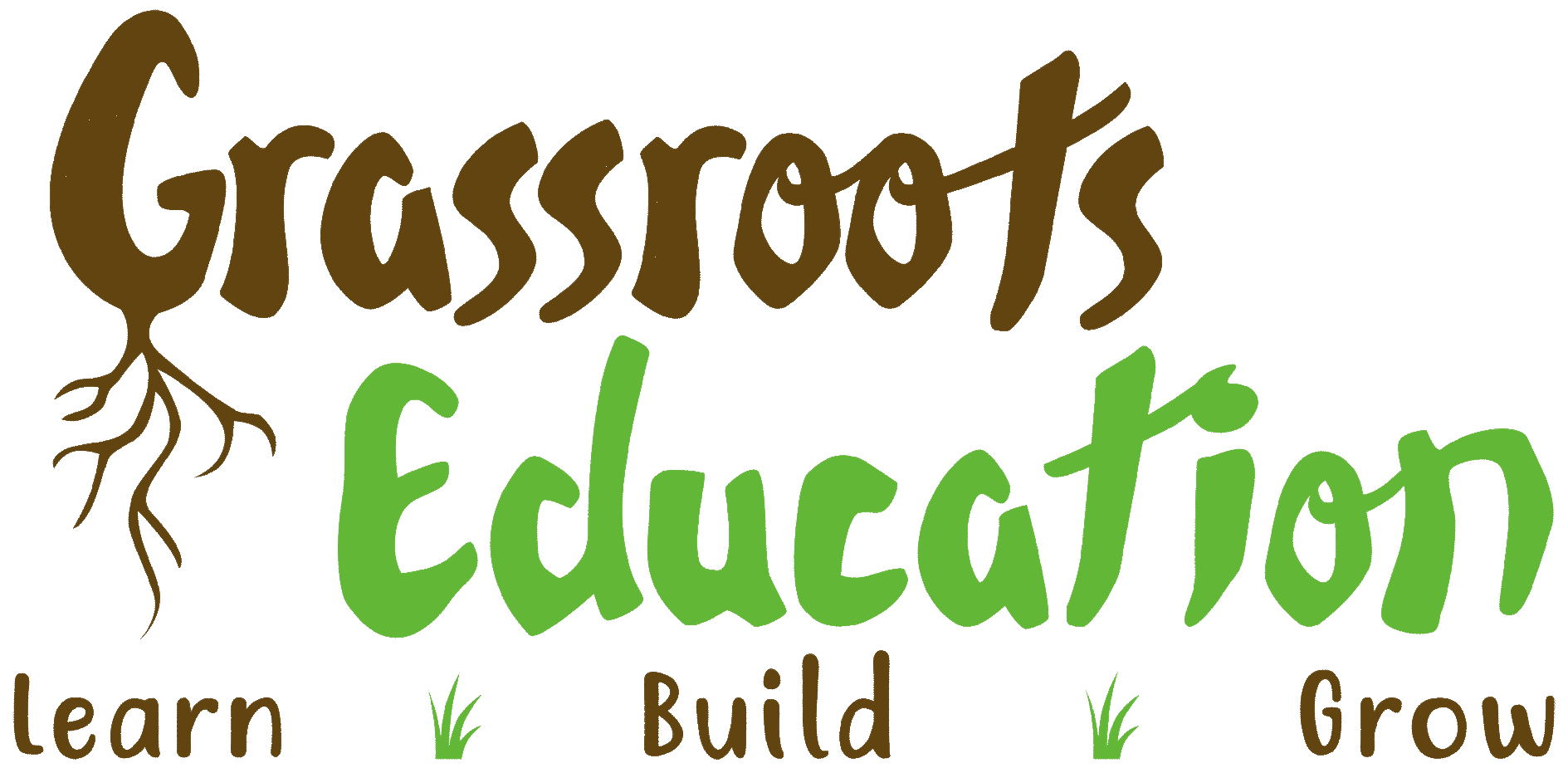
by Marcia Davis-Dawkins | Sep 9, 2019 | Education, Kids, Parents, Teachers
Teaching – Win or Lose?

By Dr. Marcia A. Davis-Dawkins
Many, many, many years ago I decided to enter the classroom as a teacher, but with much trepidation. Teaching for me was not first on my radar since most of the people in my family were teachers and it just didn’t seem like the career choice because, as most people may know, there is little financial gain in this profession. Needless to say, I did everything (or so it seems) I could to steer from being a teacher. Suffice it to say, when the opportunity presented itself for me to go to college under the stern advisement of my aunt, with whom I lived and was a teacher, I took it, but with a fight. The carefully worded newspaper ad enticed me (rather my aunt who then yelled and made it seem as if it would be a missed opportunity, if not taken) to apply for a spot in the world of teaching. The ad also emphasized that I would have a double career – one in business as well as a teacher of business studies! I was caught, but again, teaching was not my choice. I wanted to be in the business world – an administrative assistant or the first step in being an accountant. As fate would have it, weeks before graduation, I was hired on the spot by the head of the business department of my high school, as a business teacher.
I taught until I migrated and it seemed only fit for me to discard, or so I thought, my teaching career path and decided that I would again study business in a new country. Well, no sooner was I done studying, when I wet my feet in the business world and decided that I would return to my other choice – teaching! I decided that even though, it hasn’t made me rich or famous, it has it rewards. It also has it ups and downs. It also seems as if the days when the teachers were seen as the authoritative figures as well as the disciplinarian are over. Many teachers, including myself, get despondent because of the role reversals in the classroom. Many of us spend our time trying to manage students’ behaviors instead of teaching. It is with lots of hassle, and might I say struggle, because so many of our student enter the classroom with lots of psychological problems, it seems. Some parents who believe that we could be the enemy sometimes challenge us. As it were, because of the challenges and the fights that we can we, at times face, we get despondent and wonder why we entered this journey called teaching. But we are reminded of the students whom we reach and who contact us to say what a great job we did with their students and that our job did not go unnoticed.
One of the advantages of teaching is that teachers can usually wipe the slates clean and start over for each school year, but then there are constant reminders of the headaches; will there be any unfortunate stories or items in the news, school fights involving students or even students and teachers, teachers being taunted, teachers being allegedly complained about, teachers being fired because of unexplained behaviors among other things? Where are the lines drawn? Are we too busy worrying if we are next instead of doing what we loved the most or are we being given a chance to do that which we really enjoy: teach? Can we prove that we care about our students and want to see them succeed?

I often wonder if when interns are in the classroom, based on what they see and/or hear they change their minds about teaching and ask themselves why they bothered to go to college to be a teacher? Without asking them, I usually come to the conclusion that like me, they realized that they are good at teaching and want to make a difference one student at a time. I do know for sure that some interns or even teachers buckle under the pressure of teaching and quit. The reasons may vary. They may think that the students are too disrespectful, the financial rewards are not equal to the stress of teaching, teaching isn’t the right fit for them or simply that they realize that they are horrible teachers!
There is a constant war in my head encouraging me to study to show myself approving, to understand my craft more, as well as to be compensated, but how can I climb the ladder without being an administrator? Is that what I really want to do in education? Maybe I don’t want to be the manager of teachers! I simply want to get better at my craft that I enjoy.
For me, I know that since I won’t get the compensation I want, I must continue to meet the amazing parents, students and even fellow educators; naturally that is a big gain for me. Therefore, it has been a great experience for me, and I still look forward to hearing the wonderful words, “Oh I get it now!” from my students. Let’s be clear here: teaching can cause anxiety and if I am not careful I can be stressed out and possibly lose my mind. I once read, “Our resumes are different from our eulogies – No one will be at my funeral saying I was such a great teacher that I brought test scores up. Of course that would make me feel great, but is that all I am worth— to raise test scores? I think the important thing to me is to make a difference in a child’s life and that will bring inner peace to me.
Interestingly enough, I do think that we get and should use the summer break to evaluate our lives, our career path, our teaching styles and get revived, revitalized and restored. How can we do that? Well, the choice is yours because once we decide to go back using that clean slate, we have to raise the expectation bar and craft out a new school year!
Embracing Change

by Marcia Davis-Dawkins | Jun 23, 2019 | Education, Kids, Parents, Teachers
Read Some More!

By Marcia Davis-Dawkins
It’s that time of the year again, when as educators we ask students to read, read and read again during the summer. We ask our students to read several books and even do book reports and return the book reports the first week of school. For the most part, some students wait until a week before school reopens. Then they try to read book/s in one week, not to mention complete the book report. Ten chances to one, they are not done properly and the point of reading through the summer to encourage learning is missed totally. How can we as educators motivate students to read more during the summer and, as it were, enjoy reading? It saddens me when I heard a student say recently that he couldn’t wait until the end of the school year because he knows that his teacher will give him a book report and he will throw his hands in the air (along with the book) and let his book report directions fly away as he lifts his hands showing his happiness.
Like everything else, we are motivated to do things we enjoy and will want to do them because they make us happy and they won’t be drudgery. One of the things that came to mind is what young Marley Dias initiated. She is an author and public speaker and the youngest member of Forbes’ “30 Under 30.” She started a campaign called #1000blackgirlbooks because she was frustrated that she hadn’t read books in school featuring black children who are main characters and were written by black authors. Marley loves reading and has always loved reading and wants to encourage students to love reading as well and not see it as a form of punishment. Through her initiative students can be exposed to books where the characters resemble them and hence can identify with and feel confident in themselves. I intend to be a part of that initiative by buying some of those books for the students I work with and include books of Latino origins as well. The primary aim is simply to encourage students to read at whatever cost.
I recently read an article about a librarian who had a custom made book bike filled with 250 pounds of books and cycles all over the city of San Pedro. Her aim is to introduce people to reading and how much fun it can be. See article below. Through this awesome program, the librarian has given away 5,000 books to many readers of varying ages. This librarian aimed at “introducing people to the magic of reading.” I have found that many of the students with whom I work, are not even members of the library. They would rather play video games than read! I also spoke with another adult who thinks that libraries are unnecessary, because I-pads and phones are at our fingertips. Of course, I do know that even though electronic devices are at our fingertips, there are still some people who do not have access to electronic devices and need to use the library. Or what if the electronic devices are not working, then going to the library would serve as a big help to fill the gap.
 This school year after seeing some students in the third grade read aloud to a dog. I decided to read more about the benefits of students reading aloud to dogs. I discovered that since most students like dogs, that reading to dogs could help improve the students’ reading skills by reading in an atmosphere that is relaxed. This relaxed atmosphere helps calm them. Reading to dogs can also help to decrease the stress of reading aloud since the dogs are not talking back or ridiculing them. This definitely could improve the students’ self esteem, boost the students’ self-confidence and also encourage them to read more. I did notice also that the dog that was being read to was very calm and was trained to be around students. The students also looked forward to spending time with the dog and really enjoyed reading to the dog. It was evident that they would miss this activity one day per week. One of the students even asked the dog owner if they (the dog and its owner) would return in fall when they were in the fourth grade. In the meantime, I was encouraging my second graders to read more so they can practice to read to the dog in third grade. I felt that it would motivate them to read more and then when they get to third grade they would be more comfortable reading. As educators, we have to do as much as we can to encourage students to be life long readers; after all, reading is everywhere and today’s readers become tomorrow’s leaders!
This school year after seeing some students in the third grade read aloud to a dog. I decided to read more about the benefits of students reading aloud to dogs. I discovered that since most students like dogs, that reading to dogs could help improve the students’ reading skills by reading in an atmosphere that is relaxed. This relaxed atmosphere helps calm them. Reading to dogs can also help to decrease the stress of reading aloud since the dogs are not talking back or ridiculing them. This definitely could improve the students’ self esteem, boost the students’ self-confidence and also encourage them to read more. I did notice also that the dog that was being read to was very calm and was trained to be around students. The students also looked forward to spending time with the dog and really enjoyed reading to the dog. It was evident that they would miss this activity one day per week. One of the students even asked the dog owner if they (the dog and its owner) would return in fall when they were in the fourth grade. In the meantime, I was encouraging my second graders to read more so they can practice to read to the dog in third grade. I felt that it would motivate them to read more and then when they get to third grade they would be more comfortable reading. As educators, we have to do as much as we can to encourage students to be life long readers; after all, reading is everywhere and today’s readers become tomorrow’s leaders!
Work Cited
https://abc7.com/education/librarian-pedals-with-books-on-mission-to-gather-young-readers/1357968/
Education and Success
Check Our NEW Quotes Page too!

by Marcia Davis-Dawkins | May 30, 2019 | Education, Kids, Parents, Teachers, Teens
Pledging

By Dr. Marcia Davis-Dawkins
So many times we have taken pledges, recited pledges, listened to pledges and so on. Do we really know what we are saying? What is a pledge? What is the purpose of a pledge? According to Merriam-Webster Dictionary, a pledge is a solemn promise or undertaking. So for instance, if we were to make a pledge to give money to an organization in need, we have to follow up on the pledge or promise. It sends a message that we are committed to a cause.
Most countries have a National Pledge, which is an oath taken by the country that is recited at a public event. For example, Jamaica has a national pledge which is a promise by the people to serve the country according to their skills and talents of the people. When the pledge is recited it sends a message that the people are taking a stance of oneness and togetherness because the nationals are committed to a cause.
Since the National Pledges are so important and speak of sacrificial love and commitment to nations, I wanted to show the Pledges of Jamaica and the United States of America.
 Jamaica National Pledge/Allegiance
Jamaica National Pledge/Allegiance
Before God and All mankind.
I pledge the love and loyalty of my heart
The wisdom and courage of my mind,
The strength and vigour of my body
in the service of my fellow citizens.
I promise to stand up for justice,
Brotherhood and Peace, to work diligently and creatively,
To think generously and honestly, so that,
Jamaica may, under God, increase in beauty, fellowship and prosperity,
and play her part in advancing the welfare of the whole human race.
 American Pledge of Allegiance
American Pledge of Allegiance
I pledge allegiance to the Flag of the United States of America and
to the Republic for which it stands:
one Nation under God, indivisible, with Liberty
and Justice for all.
Just quickly analyzing the pledges, we can see that they both pledge under oath – as if swearing in court to promise to serve country as well as people of the country. Another word that is included in both of the pledges is, “Justice” for everyone. These pledges encourage oneness and freedom. How is this emphasized oneness and freedom taught in the classroom? Some days I wonder if the students are aware of what unity means and yet each morning the students have to repeat the pledge. In recent years students have seemed so unkind to each other and at times alarmingly so even amongst kindergarteners. “Brotherhood and peace.” – just listening to the students talking to each other, I often question if they understand what those words mean. If they did, they should be able to agree to disagree. There is hardly love for each other – let alone working with each other. While conquering the dilemma on a national level is far too complex to be achieved in the classroom, steps to treat each other respectfully and with dignity are reasonable goals and can be modeled there. The results of failing to do so are too great. The nonfulfillment of school staff and students to behave with dignity, courtesy and respect towards others can harm individuals and impair the functioning of all. In particular, harassment, bullying and victimization can cause fear, stress and anxiety, and impose strains on work, personal and family life. They can lead to illness, accidents, absenteeism, poor performance, an apparent lack of commitment, staff resignation or student withdrawal.
There are ways to remedy the situation and foster acceptance of all. These include, but are not limited to:
- Classroom walls-Many teachers groan when it comes time to decorate the classroom because it seems like such a low return on the time and effort invested. But putting up positive messages in your classroom can do so much more than improve the color scheme. You can include messages encouraging diversity, tolerance, acceptance and making your classroom a safe space. Making your classroom comfortable and accepting as a physical space can help students who are struggling in their personal lives, especially students who have become victimized
- Acknowledge Student and Teacher Emotions- When major events fill people with emotions, as, for example, the result of a presidential election can, it can make the classroom a very emotionally-charged place. One of the best things you can do after a major event is to create a space where everyone can acknowledge those emotions and ask questions freely while moderating the discussion. You can also connect the events to literature and other texts to help students build emotional intelligence.
- Explain Terms and Concepts Related to Current Events- It’s easy for parents and students to get up in arms over politically-charged events and debates, and while you may not be able to talk frankly about your own political leanings, you can at least clarify the meanings of certain words or concepts that are prevalent in the national discussion. For example, some students today may have trouble understanding what it means when a city is a “Sanctuary City”, and helping explain what those are can help the student make an independent decision and keep discussions civil.
- Foster a Sense of Empathy in your Classroom- Some students will probably speak out of turn or act rudely even when you’re trying to create a safe space in class, but by engaging with the student directly in a mindful, non-judgmental way, you can bring more empathy into your classroom. Many teachers consider empathy as the antidote to bullying, and there’s data to back that up. You can bring more empathy into your teaching by encouraging critical thinking and self-reflection.
- Lead by Example- This is much easier said than done, but students are always watching your example, and for every one student that asks a question that might frustrate you, there are four who wished they had spoken up to ask that question too. Remembering to practice empathy and patience isn’t easy, but putting in the effort will pay off by helping your students understand tolerance and making your classroom a safe space. We may not like it, but teachers are leaders to millions of students every day, and we can create a higher standard of behavior by showing students how to treat others with respect and sympathy.
In short, treat each other with dignity and respect, listen to each others’ points of view, recognizing that there may be disagreement, keep discussion and comments on the topic, and off the people and do not use inflammatory or offensive language, sarcasm, or raised voices.
There is a word that I often hear used in many organizations and at functions that I have attended. It is the word, “Harambe” which literally means, “all pull together” in Swahili and is also the official motto of Kenya and appears on its coat of arms. I say we should help to honor our class, and ultimately, our nation, by taking care of each other through human and civil rights.. We shouldn’t simply say it, but make every effort to teach, encourage and implement every part of the pledge according to our country’s pledge or affirmation. After all it begins what step at a time. It was Dorothy Heights who said that, “We had people of all backgrounds coming together – all races, all creeds, all colors, all status in life. And coming together there was a kind of quiet dignity and a kind of sense of caring and a feeling of joint responsibility.”
The Teacher, the Leader

by Marcia Davis-Dawkins | May 15, 2019 | Education, Kids, Parents, Teachers
Speak the Truth

By Dr. Marcia Davis-Dawkins
During the month of May we celebrate children, we appreciate teachers, school nurses, Mothers’ Day, and Memorial Day. In addition, May is an important month for me because it is my mother’s and one of my brother’s birthdays. I thought that because children are our future it would be fitting to write about children.
One of my fondest activities in 3rd Grade (Elementary School) was when I was learning to write cursive. This was exciting because, not only was I learning a new skill, but I was also writing and learning new gems or poems. They were meaningful and have stuck with me throughout my life. So much so, that I have used them many times in my writings and even have them posted in my classroom/s. One of these, I don’t know the author and have even tried to Google it, but to no avail. So I hope I will be forgiven for not giving the credits to the author. Here it goes:
Speak the truth and speak it ever.
Cost it what it will.
For he who hides the wrong he did.
Does the wrong thing still.
In my classroom where I have that treasure posted, it always seems to spark a conversation with my students. After reading it (even those who struggle to read), they usually ask questions including: “What does it mean?” “Why do people lie?” “Why do put you it (the poem) there (in the classroom)?” “What does ‘Does the wrong thing still’ mean?” The discussions usually include that lying is not a good thing and once we begin lying, we cannot seem to stop, or that lying is difficult because you will always have to remember what the first lie was, so your story is kept straight.
Because I have had many students over the years, various questions and discussions have arisen. Some of them have been thought provoking as well. A recurring one seems to be that we can misrepresent the truth just a little bit so that we won’t get in trouble or look bad in other people’s eyes. Of course as humans, most of us want the truth to be camouflaged simply because we might not want to be controlled or judged by others. As a little girl, I was always told that once you start with one small lie, it will lead to a bigger one, still a bigger and eventually could lead to stealing, then jail time. Essentially, it is best not to lie because there are consequences to lying and telling the truth will be better than lying. If you tell the truth, “the truth sets you free” and brings peace of mind, since you don’t have to try to worry or remember what you told someone previously about the same topic. Plus, it also means that if you are caught lying once, then people might not trust you another time. If you are not trustworthy, then there is no respect for the liar. In other words, they might think you are lying even when you are telling the truth. Is it worth it to lie? The truth will help you grow stronger because you can learn from the mistakes you make and not constantly lie or avoid the truth. Speaking the truth is part of my core foundational value and was taught early on in my toddler years by my mother and those who were responsible for my upbringing, including teachers. There is value in knowing that I can be trusted – it boosts my integrity for life! Another quote sums up telling the truth best, “The truth doesn’t cost anything, but a lie could cost you everything.”
 Since one of the many hats that we wear as educators is to actually teach, I say posting certain quotes in our classroom can evoke certain teachable moments. One of my goals continues to be spreading a key foundational core value by encouraging students to speak the truth and speak it ever. In a world where being deceptive sometimes rears it ugly head, it is best that we help students to carry a moral standard of speaking the truth all the time.
Since one of the many hats that we wear as educators is to actually teach, I say posting certain quotes in our classroom can evoke certain teachable moments. One of my goals continues to be spreading a key foundational core value by encouraging students to speak the truth and speak it ever. In a world where being deceptive sometimes rears it ugly head, it is best that we help students to carry a moral standard of speaking the truth all the time.
The Power of Words

by Marcia Davis-Dawkins | Apr 29, 2019 | Education, Kids, Parents, Teachers, Teens
Chasing Windmills

By Dr. Marcia Davis-Dawkins
I have often reminded myself that nothing happens in life without a reason and even when it seems odd at the time, later on in life as you are given a chance to think of the lesson/s learned from an encounter, the significance hits you when you have more wisdom and experience. Recently I decided to take a nature walk  and take care of my body on Earth Day. Whether you might see this has a mere coincidence or not, things just seemed to roll into place and as I walked and talked with a friend, and I realized that again, “nothing happens without a reason.” This time the friend encouraged me to watch a movie, which I promised to watch and I was true to my word. The movie entitled the The Boy Who Harnessed the Wind is based on the novel of that title, in which the protagonist and narrator, William Kamkwamba, are one and the same. In his memoir, a young Malawian man grows up in the rural village of Wimbe during the 2000 famines in Malawi. William has an incredible aptitude for science and engineering, though he is unable to stay in school due to a lack of funds. Self-motivated and resourceful, he finds books in his local library that allow him to learn about physics, electricity, and laborsaving inventions on his own. With the help of his friends, Gilbert and Geoffrey, William then builds a windmill so that his family can have free electricity that is not controlled by government blackouts. The windmill earns William the support of a Malawian professor, who helps William gain scholarships to school and a fellowship with TED Global that puts William in contact with other innovators and entrepreneurs across not the African continent, but the world. William embodies the values of hard-work, education, and helping others, maintaining an optimistic outlook on everything, despite the many troubles described in the book.
and take care of my body on Earth Day. Whether you might see this has a mere coincidence or not, things just seemed to roll into place and as I walked and talked with a friend, and I realized that again, “nothing happens without a reason.” This time the friend encouraged me to watch a movie, which I promised to watch and I was true to my word. The movie entitled the The Boy Who Harnessed the Wind is based on the novel of that title, in which the protagonist and narrator, William Kamkwamba, are one and the same. In his memoir, a young Malawian man grows up in the rural village of Wimbe during the 2000 famines in Malawi. William has an incredible aptitude for science and engineering, though he is unable to stay in school due to a lack of funds. Self-motivated and resourceful, he finds books in his local library that allow him to learn about physics, electricity, and laborsaving inventions on his own. With the help of his friends, Gilbert and Geoffrey, William then builds a windmill so that his family can have free electricity that is not controlled by government blackouts. The windmill earns William the support of a Malawian professor, who helps William gain scholarships to school and a fellowship with TED Global that puts William in contact with other innovators and entrepreneurs across not the African continent, but the world. William embodies the values of hard-work, education, and helping others, maintaining an optimistic outlook on everything, despite the many troubles described in the book.
After I watched the movie I thought about how inspirational it was and especially because it was educational based, I couldn’t help but wonder how much influence we are as educators to help students live out their dreams. In the story, William’s father didn’t think he was capable of making the windmill even though he had made a “mock model” of it. His father thought it was simply a toy and when William asked for the use of his father’s bike to help to make the windmill, William was told to go help him in the field and to stop chasing a dream that would essentially take him nowhere. In essence, he sent him on his way and said he was wasting his time.
The school system also didn’t believe in William and had suspended him from school because his family was unable to pay his school fee. One of the things that resonated with me after watching the movie was how much some of our students take going to school for granted. Some of the students aren’t even aware of the fact that in some parts of the United States, or other parts of the world, because of poverty or other socioeconomic issues students/children aren’t able to attend school. Yet, they have the opportunities and are often wasting their time and energy. Then again, are they aware of how others in history fought to get them the opportunity to attend school? It also begs the question, are we teaching students their history? It is easy to say that it is not the educators’ job to teach the students their history, but to place it in the hands of their parents, but are the parents aware or are they qualified to do so? Yes, I know we have to wear many hats, but as we try to educate the whole student, I firmly believe that this is part of our charge. I also say that if we don’t know enough about the topic for instance, then we could read more about it so we can share. Essentially, since we are supposed to be life- long learners, then we can learn as we teach – which in turn, can make our teaching fresh.
In the book, William said and I quote, “I’m ashamed to see this school broken in such fashion. We should tear the whole place down and start from scratch, build it again strong and proud! Teachers’ houses also need to be shipshape, and students need new desks and books!”
The aforementioned book reminded me of another somewhat similar story, Don Quixote written in the late 16th century. In that selection, the character of Quixote is a 50ish rather myopic man, seemingly deranged and obsessed with tales of knighthood, fantasy and chivalry. He battles illusory monsters, which are actually windmills. The stories are comparable in that perception is everything. The way we see the world is how it shall be. Both main characters accomplished what they set out to do because they believed that they could! If we choose to see good, there will be good. Great changes in life don’t happen by settling for what is in front of us. They happen by looking at the world in unique ways.
 It sent home another message that I had read from Hebrews 13:16, (NIV) “Do not neglect to do good and to share what you have, for such sacrifices are pleasing to God.” This further encouraged me to put into action my dream of helping students from my homeland Jamaica, who are less fortunate and very talented, and would also appreciate the extra assistance to push them further so they can run with their dreams, go on and, who knows, maybe build windmills like William. Give the students an opportunity to, as they say, “Chase windmills,” the glorious journey of chasing ideas bigger than themselves and remaining optimistic in the face of cynicism!
It sent home another message that I had read from Hebrews 13:16, (NIV) “Do not neglect to do good and to share what you have, for such sacrifices are pleasing to God.” This further encouraged me to put into action my dream of helping students from my homeland Jamaica, who are less fortunate and very talented, and would also appreciate the extra assistance to push them further so they can run with their dreams, go on and, who knows, maybe build windmills like William. Give the students an opportunity to, as they say, “Chase windmills,” the glorious journey of chasing ideas bigger than themselves and remaining optimistic in the face of cynicism!
Work Cited
Mueller, B. (2019). “The Boy Who Harnessed the Wind, Plot Summary.” Lit Charts.LitCharts LLC, June 2017. Web. 21 Apr 2019.
I Can Do All Things

by Marcia Davis-Dawkins | Feb 5, 2019 | Education, Kids, Parents, Teachers, Teens
Loneliness and Mental Wellness

 By Dr. Marcia Davis-Dawkins
By Dr. Marcia Davis-Dawkins
Have you ever felt alone? It is often said that we can be in a crowd, but still feel alone. Some skeptics might even ask, “How is that possible?” But truth be told, it is possible for people to feel left out in a crowd or even in the classroom. Take for instance the student who is new to an area or a school and because he/she has no friends in the environment then, he/she feels as if he/she doesn’t belong. There is also the case where the student has had some emotional issues in the family, now he/she feels isolated because there are hidden pains in the student’s life.
“Why doesn’t anyone want me?
At times, there are students who might have been abandoned by their parents so the students definitely feel unwanted and unloved. Their first thoughts might be, “Why doesn’t anyone want me?” or “Why me?” This type of loneliness might even lead to students inflicting pain on themselves or even lashing out at their fellow classmates. They might be verbally abusive to those around them in an attempt to mask their lonely feelings. Still another example, students might feel alone when going through puberty and are trying to figure out themselves, as sometimes is the case for students who are in the middle school (ages 11-14).
For adults, being lonely or being alone can be a time of reflection where one can take stock of where they are coming from, where they are now and where they plan on being for the future. Plus, for those who are religious, it can be a time of meditation with God – He usually reveals Himself to the meditator and gives plenty of understanding to life. Reflection can lead to understanding of oneself, so that there is no room for depression or anxiety. But, like most things, there should be balance where you should not dwell too much on the negatives in the past but learn from the past and use with moderation. It might be a time to ask not why is this happening to me , but rather, what is this teaching me?
In the long run, what we don’t want is to mask our feelings or hide our identity because of being hurt. Find someone you can confine in or use alone time to read a book or write your thoughts so you are not consumed with them. It is important to be yourself and not compare yourself with another person, thinking you are not smart enough, you are not beautiful/handsome enough, not rich enough, not outgoing enough. There are people who feel like they are so insufficient and aren’t satisfied with who they are.
Loneliness for Adults
 Also for adults, loneliness can come because of a lost spouse or loved one and things seems like your world in about to end because the person is grieving. For some, it can be a sense of confusion. Some might question themselves, even question God, or “Why did this happen?” “How will I survive without my spouse?” “Where do I stand?” “What will I do in the weeks, months, years to come without my spouse?” These, of course, are legitimate inquiries without immediate answers, but the interesting thing is that there is usually help, whether through family/friends support or from counselors. Whatever the situation, fear of being alone or the feeling that we will never make it – there is always hope.
Also for adults, loneliness can come because of a lost spouse or loved one and things seems like your world in about to end because the person is grieving. For some, it can be a sense of confusion. Some might question themselves, even question God, or “Why did this happen?” “How will I survive without my spouse?” “Where do I stand?” “What will I do in the weeks, months, years to come without my spouse?” These, of course, are legitimate inquiries without immediate answers, but the interesting thing is that there is usually help, whether through family/friends support or from counselors. Whatever the situation, fear of being alone or the feeling that we will never make it – there is always hope.
 We might be lonely simply because people have disappointed us so much that we just want to be by ourselves and enjoy our own company. At times, we go through a period of loneliness because this time is needed for reflecting where we can assess ourselves and set new goals. Frankly speaking, we shouldn’t fight this aloneness, but embrace it and develop something that you might never have. It could be a time where we can get to know ourselves. At whatever cost and at whatever stage in life we are, loneliness is real and it affects our psyche. Whether we want to admit it or not, it can play a big part of our lives (young or old). It is no wonder why what Maya Angelou said is so poignant, “Music was my refuge. I could crawl into the space between the notes and curl my back to loneliness.” What is vital to remember and remind our struggling students is that if you’ve ever had feelings of loneliness, you are far from alone. Loneliness is one of the most common, if unpleasant, emotions that millions of people experience. For some it is passing, for others, it is recurring. But for all of us, it is a part of the human experience.
We might be lonely simply because people have disappointed us so much that we just want to be by ourselves and enjoy our own company. At times, we go through a period of loneliness because this time is needed for reflecting where we can assess ourselves and set new goals. Frankly speaking, we shouldn’t fight this aloneness, but embrace it and develop something that you might never have. It could be a time where we can get to know ourselves. At whatever cost and at whatever stage in life we are, loneliness is real and it affects our psyche. Whether we want to admit it or not, it can play a big part of our lives (young or old). It is no wonder why what Maya Angelou said is so poignant, “Music was my refuge. I could crawl into the space between the notes and curl my back to loneliness.” What is vital to remember and remind our struggling students is that if you’ve ever had feelings of loneliness, you are far from alone. Loneliness is one of the most common, if unpleasant, emotions that millions of people experience. For some it is passing, for others, it is recurring. But for all of us, it is a part of the human experience.
Emotions/Feeling







 This school year after seeing some students in the third grade read aloud to a dog. I decided to read more about the benefits of students reading aloud to dogs. I discovered that since most students like dogs, that reading to dogs could help improve the students’ reading skills by reading in an atmosphere that is relaxed. This relaxed atmosphere helps calm them. Reading to dogs can also help to decrease the stress of reading aloud since the dogs are not talking back or ridiculing them. This definitely could improve the students’ self esteem, boost the students’ self-confidence and also encourage them to read more. I did notice also that the dog that was being read to was very calm and was trained to be around students. The students also looked forward to spending time with the dog and really enjoyed reading to the dog. It was evident that they would miss this activity one day per week. One of the students even asked the dog owner if they (the dog and its owner) would return in fall when they were in the fourth grade. In the meantime, I was encouraging my second graders to read more so they can practice to read to the dog in third grade. I felt that it would motivate them to read more and then when they get to third grade they would be more comfortable reading. As educators, we have to do as much as we can to encourage students to be life long readers; after all, reading is everywhere and today’s readers become tomorrow’s leaders!
This school year after seeing some students in the third grade read aloud to a dog. I decided to read more about the benefits of students reading aloud to dogs. I discovered that since most students like dogs, that reading to dogs could help improve the students’ reading skills by reading in an atmosphere that is relaxed. This relaxed atmosphere helps calm them. Reading to dogs can also help to decrease the stress of reading aloud since the dogs are not talking back or ridiculing them. This definitely could improve the students’ self esteem, boost the students’ self-confidence and also encourage them to read more. I did notice also that the dog that was being read to was very calm and was trained to be around students. The students also looked forward to spending time with the dog and really enjoyed reading to the dog. It was evident that they would miss this activity one day per week. One of the students even asked the dog owner if they (the dog and its owner) would return in fall when they were in the fourth grade. In the meantime, I was encouraging my second graders to read more so they can practice to read to the dog in third grade. I felt that it would motivate them to read more and then when they get to third grade they would be more comfortable reading. As educators, we have to do as much as we can to encourage students to be life long readers; after all, reading is everywhere and today’s readers become tomorrow’s leaders!
 Jamaica National Pledge/Allegiance
Jamaica National Pledge/Allegiance American Pledge of Allegiance
American Pledge of Allegiance

 Since one of the many hats that we wear as educators is to actually teach, I say posting certain quotes in our classroom can evoke certain teachable moments. One of my goals continues to be spreading a key foundational core value by encouraging students to speak the truth and speak it ever. In a world where being deceptive sometimes rears it ugly head, it is best that we help students to carry a moral standard of speaking the truth all the time.
Since one of the many hats that we wear as educators is to actually teach, I say posting certain quotes in our classroom can evoke certain teachable moments. One of my goals continues to be spreading a key foundational core value by encouraging students to speak the truth and speak it ever. In a world where being deceptive sometimes rears it ugly head, it is best that we help students to carry a moral standard of speaking the truth all the time.
 and take care of my body on Earth Day. Whether you might see this has a mere coincidence or not, things just seemed to roll into place and as I walked and talked with a friend, and I realized that again, “nothing happens without a reason.” This time the friend encouraged me to watch a movie, which I promised to watch and I was true to my word. The movie entitled the
and take care of my body on Earth Day. Whether you might see this has a mere coincidence or not, things just seemed to roll into place and as I walked and talked with a friend, and I realized that again, “nothing happens without a reason.” This time the friend encouraged me to watch a movie, which I promised to watch and I was true to my word. The movie entitled the  It sent home another message that I had read from Hebrews 13:16, (NIV) “Do not neglect to do good and to share what you have, for such sacrifices are pleasing to God.” This further encouraged me to put into action my dream of helping students from my homeland Jamaica, who are less fortunate and very talented, and would also appreciate the extra assistance to push them further so they can run with their dreams, go on and, who knows, maybe build windmills like William. Give the students an opportunity to, as they say, “Chase windmills,” the glorious journey of chasing ideas bigger than themselves and remaining optimistic in the face of cynicism!
It sent home another message that I had read from Hebrews 13:16, (NIV) “Do not neglect to do good and to share what you have, for such sacrifices are pleasing to God.” This further encouraged me to put into action my dream of helping students from my homeland Jamaica, who are less fortunate and very talented, and would also appreciate the extra assistance to push them further so they can run with their dreams, go on and, who knows, maybe build windmills like William. Give the students an opportunity to, as they say, “Chase windmills,” the glorious journey of chasing ideas bigger than themselves and remaining optimistic in the face of cynicism!
 By Dr. Marcia Davis-Dawkins
By Dr. Marcia Davis-Dawkins Also for adults, loneliness can come because of a lost spouse or loved one and things seems like your world in about to end because the person is grieving. For some, it can be a sense of confusion. Some might question themselves, even question God, or “Why did this happen?” “How will I survive without my spouse?” “Where do I stand?” “What will I do in the weeks, months, years to come without my spouse?” These, of course, are legitimate inquiries without immediate answers, but the interesting thing is that there is usually help, whether through family/friends support or from counselors. Whatever the situation, fear of being alone or the feeling that we will never make it – there is always hope.
Also for adults, loneliness can come because of a lost spouse or loved one and things seems like your world in about to end because the person is grieving. For some, it can be a sense of confusion. Some might question themselves, even question God, or “Why did this happen?” “How will I survive without my spouse?” “Where do I stand?” “What will I do in the weeks, months, years to come without my spouse?” These, of course, are legitimate inquiries without immediate answers, but the interesting thing is that there is usually help, whether through family/friends support or from counselors. Whatever the situation, fear of being alone or the feeling that we will never make it – there is always hope. We might be lonely simply because people have disappointed us so much that we just want to be by ourselves and enjoy our own company. At times, we go through a period of loneliness because this time is needed for reflecting where we can assess ourselves and set new goals. Frankly speaking, we shouldn’t fight this aloneness, but embrace it and develop something that you might never have. It could be a time where we can get to know ourselves. At whatever cost and at whatever stage in life we are, loneliness is real and it affects our psyche. Whether we want to admit it or not, it can play a big part of our lives (young or old). It is no wonder why what
We might be lonely simply because people have disappointed us so much that we just want to be by ourselves and enjoy our own company. At times, we go through a period of loneliness because this time is needed for reflecting where we can assess ourselves and set new goals. Frankly speaking, we shouldn’t fight this aloneness, but embrace it and develop something that you might never have. It could be a time where we can get to know ourselves. At whatever cost and at whatever stage in life we are, loneliness is real and it affects our psyche. Whether we want to admit it or not, it can play a big part of our lives (young or old). It is no wonder why what